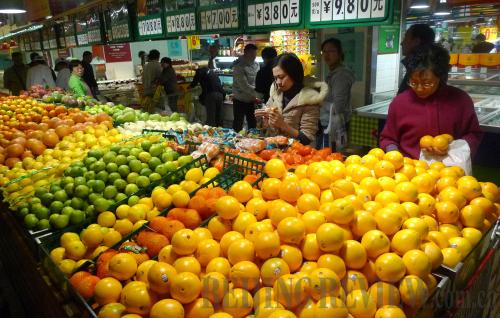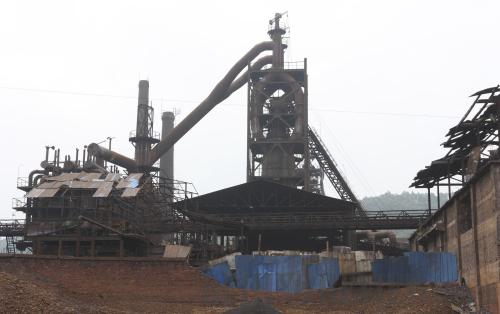|
 |
|
COMBATING INFLATION: Consumers pick up fruit at a supermarket in Shanghai. The city has implemented a string of measures to stabilize food prices (PEI XIN) |
While unemployment plagues the United States and the sovereign debt crisis threatens the euro zone, the Chinese economy has been sailing—if not serenely, then at least safely—through the sweeping storms of the financial crisis. But concerns are still rampant, especially over inflation and structural imbalances that are stretching the nerves of policymakers.
For 2011, China will adhere to a stable and flexible economic strategy, putting in place a prudent monetary policy and a proactive fiscal policy—the macroeconomic outline was mapped out at the annual Central Economic Work Conference (CEWC), China's top-level economic meeting, held December 10-12 in Beijing.
The economic situation next year will be, to say the least, complicated, with uncertainties looming large, said a statement released after the conference.
With the economy picking up steam, inflation is no longer a theoretical side-effect of the lending binge, but a real concern that needs to be tackled before it spirals out of control. The consumer price index (CPI), an effective gauge of inflation, grew 5.1 percent year on year in November, a record high since July 2008.
 |
|
GREENER ECONOMY: A Shunxin Steel Co. Ltd. facility sits dormant in Hunan Province. The Shunxin Steel, the largest private steel-maker in the province, was shut down in July 2010 as the province sought to halt polluting industrial capacities (GUO GUOQUAN) |
The lending frenzy in the past two years coaxed the country's growth engine out of low gear—it also flooded the economy with excess liquidity. In addition, fears are proliferating that unbridled printing of dollars in the United States will compound China's inflationary headache, as a large amount of the greenbacks will flow to China via various means including hot money.
"Given resources and environment bottlenecks, pressures are building on us to rebalance the economy and optimize livelihood of the residents," said the statement.
Meanwhile, although the world economy is likely to resume growth next year, the ripple effect of the crisis is prompting profound changes to the global economic landscape. It is necessary for China to keep a close watch over the change, and underpin the growth momentum at home, the statement said.
A needed change
To tame inflation, the government pledged to take a "prudent" monetary stance for next year, marking a switch from the "moderately loose" policy adopted to counter financial crisis.
"We need to prioritize price controls and guide more credit into the real economy, especially the agriculture sector and smaller businesses," said the statement. The focus of next year's macroeconomic policy is to walk a fine line between maintaining growth, rebalancing the economy and managing inflationary expectations.
Efforts to fight inflation are already underway. The central bank, the People's Bank of China, has started twisting harder on the credit screws by ordering commercial banks to slow their pace of lending and mop up excess cash from the economy. In its latest move, the central bank ordered to raise the ratio of deposits commercial banks must put aside in reserves—the reserve requirement ratio—by 0.5 percentage points effective December 20, the fifth such hike this year.
The Central Economic Work Conference has sent out a clear signal that the government will use the policy tools to steer China's monetary environment back on a normal course, said Zuo Xiaolei, chief economist at the China Galaxy Securities Co. Ltd.
| 